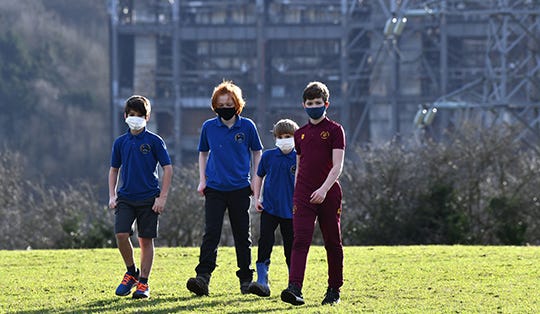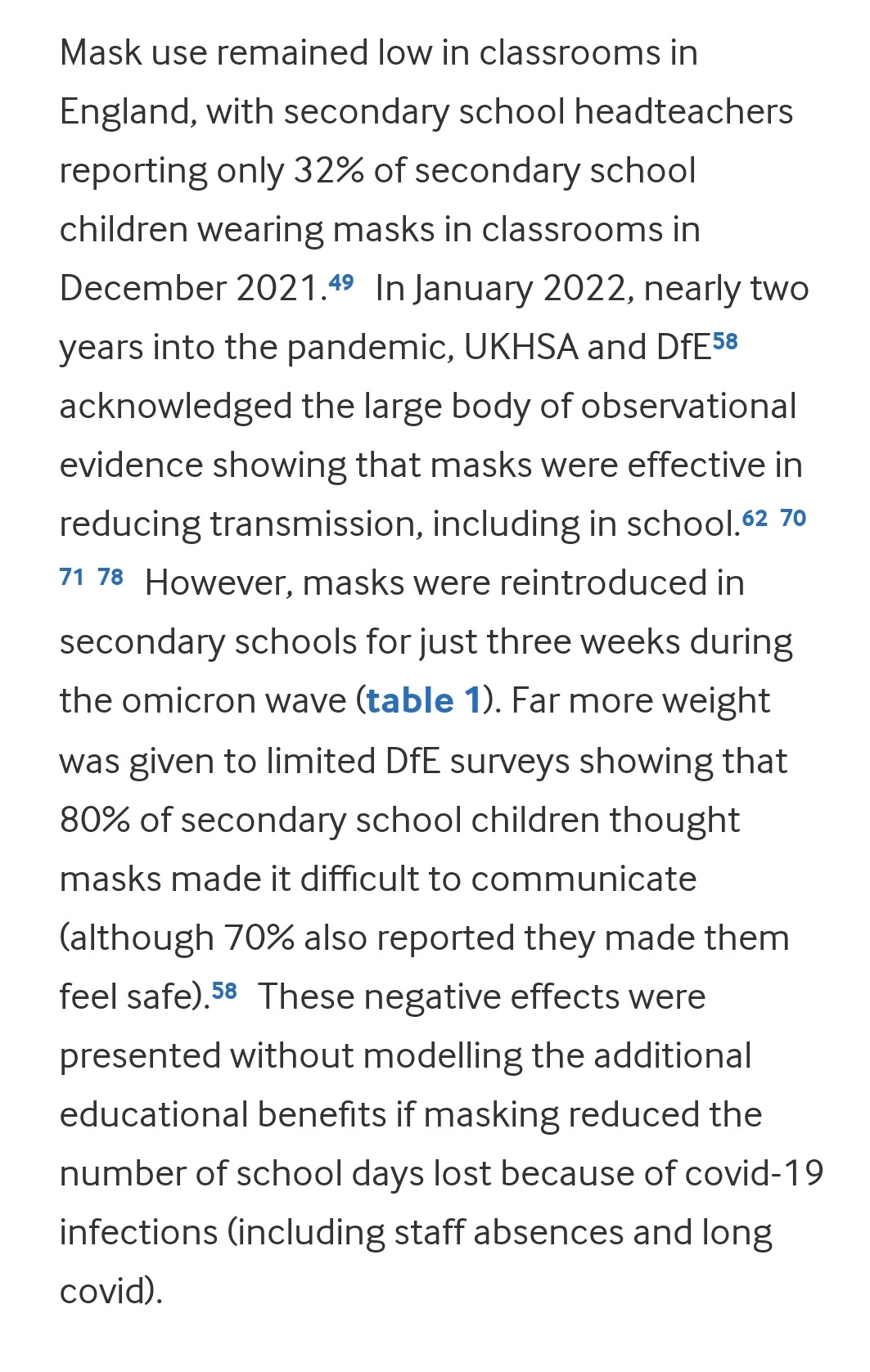BMJ study questions evidence behind UK schools policy
Children were weaponized and exploited by those ideologically opposed to all measures
A study published in the BMJ has accused the UK Government of failing to prioritised children, setting out the harms physical and educational harms of a laissez-faire attitude to allowing high transmission rates in younger age groups.
Lack of ventilation and air filtration, and the slow roll out of vaccines for younger age groups were highlighted as key failings. The greatest concern was regarding the weaponization of children's mental health, “exploited in an ideological battle by those who viewed any restriction on individual liberty as an unacceptable attack on their freedom”.
Government policy was; and still is, based on three basic false assumptions.
The study sets out how the UK was an international outlier.
The study explains how the UK education system was poorly prepared for the pandemic compared to equivalent European nations due to large class sizes in poorly ventilated buildings.
The possibility of children with the virus infecting more vulnerable adults was often ignored by policy makers, and the harms of covid and long covid were compared to covid in adults rather than other diseases in children that we seek to prevent
The Government rarely acknowledged any studies or data that they hadn’t commissioned themselves, relying on just a small group of individuals to carry out studies.
Concerns are raised regarding serious flaws in the studies conducted.
The Counter Disinformation Project notes those responsible for conducting the government’s studies have been vocal advocates of “broad natural immunity” and regularly pre-empted decisions on measures including vaccinations by making public interviews voicing their opposition.
C02 monitors were delivered late, meaning most schools were unable to participate in the DfEs ventilation survey, schools that didn’t reply due to not having monitors are counted by the DfE as having good ventilation with the DfE falsely claiming 98% of classrooms are well ventilated and had no need of investment in clean air. Recommended CO2 levels for classrooms are also almost double the recommendations of most other countries.
It took two years for the UK government to acknowledge the effectiveness of masks, however they then removed the requirement only three weeks after it was introduced.
The DfE has repeatedly cited the harms of masks for its reluctance to recommend masks, however it has provided very little evidence to justify this stance beyond a few surveys on harms and underpowered studies on effectiveness of masks. The DfE claimed it had a report on the harms of masks, but after many months they still haven’t released it.
While the paediatricians working closely with the government have been busy voicing their outrage at the idea of masks in early years, there was the same resistance to masks for 11-18 year olds in secondary. The Counter Disinformation Project notes that media coverage discussing masks in secondary often featured pictures of young primary school children in masks.
Lack of financial support for isolation was cited. This will have had a greater impact on disadvantaged families.
The stuttering role out of vaccination to younger year groups questioned the JCVIs discussions on the potential desirability of allowing children to be infected and then “boosting adults through infection”
The government has also failed to provide the education sector the resources it required, even those it has promised to provide like laptops and routers.
The study concludes with some key questions
It’s the Counter Disinformation Project’s view that the answer to all these questions besides the last is based on a misguided view that the mass infection of children would somehow produce enough herd immunity to bring an end to the pandemic.
Full study here


















Have I missed it? Is there a link to the original bmj article? If not, why not?